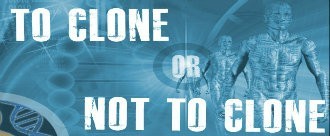Photo courtesy of calendar.fiu.edu
Madison Fantozzi and Raul Herrera/FIUSM Staff
John Loike, director of special programs at Columbia University’s center for bioethics, calls cloning technologies a “slippery slope” of ethical dilemmas.
Loike will speak on March 3 in a lecture coordinated by the Herbert Wertheim College of Medicine and the Program for the Study of Spirituality titled “Bioethical Dilemmas Emerging from Human Cloning Technologies.” The lecture is set to begin at 12:00 PM.
“The goal is to make students and faculty aware of the changing landscape of biotechnology,” he said. “A lot of these technologies raise very serious concerns and there’s a need to learn how to address these.”
Loike proposed: “How do we deal with social pressures to liberate technology in society while at the same time being aware of some of the risks and benefits?”
The event has been advertised: “to clone or not to clone?”
“Some kind of people respond to a tech and say ‘this is yucky; this doesn’t rest comfortably with me, we should try to precisely identify the ethical concerns’” Loike said.
But Loike said it goes beyond duplicating a human being — the technologies can be used for different procedures; for example, generating embryonic stem cells.
“University of Oregon published a very, very milestone paper in cells showing how they could apply the technology not to cloning human beings but to generate an embryonic stem cell,” he said. “There are a lot of different possibilities using this technology.”
He explained one procedure that involves women who have a mitochondrial genome to cure muscular diseases.
This can be used in other women by taking the nucleus from their egg and transferring it to a donor egg that has been removed. When this nucleus and mitochondria is ready for fertilization, and is implanted, these women can have healthy children.
According to Loike, 10 women in Europe and Chile have been treated this way. He said this could soon be a procedure in the United States.
But Loike proposed the ethical concern of generating embryo from three parents — the nuclear donor, mitochondrial donor and the sperm donor.
“This raises onslaught of legal and ethical questions,” Loike said. “Who is the child’s mother?”
He said while the goals are ethical, the means can seem questionable. But Loike thinks the means are ethical, despite legal obstacles.
[pullquote]“This raises onslaught of legal and ethical questions,” Loike said.[/pullquote]
But he said he cannot determine whether biological technologies will lead to future abuse.
“People may go for designer babies instead of just medically approved ones,” Loike said. “There are unregulated situations that need to be addressed.”
Loike said all institutions — social, cultural, religious and scientific — need to be integrated.
“How should bioethical issues be regulated? Leaving the government might be a good viable option,” Loike said. “Should the Food and Drug Administration be involved?”
“There are no clear solutions on how to proceed with this and that’s why I speak about it,” he said.
“One has to articulate and formulate what are the ethical challenges and once one understands that there are a variety of strategies that need to be [developed] resolve these challenges,” Loike said.
–news@fiusm.com






Be the first to comment on "To Clone or Not to Clone? University invites Doctor to Speak on Bioethics"